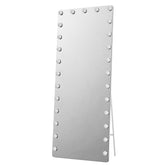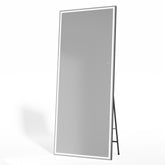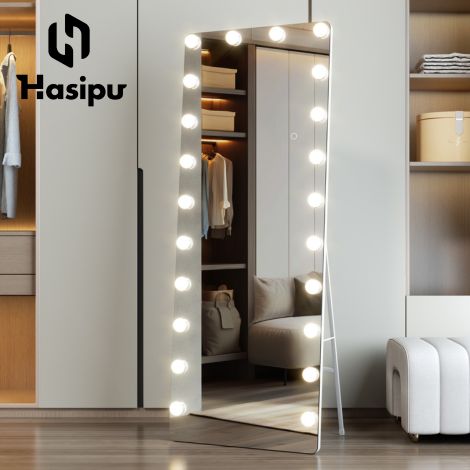Why are some mirrors not suitable for bathrooms?
by
HasipuOfficial
16 Oct 2023
Mirrors that are not suitable for bathrooms typically have specific characteristics or features that make them less suitable for the environment and conditions found in a bathroom setting. Here are some reasons why certain mirrors may not be appropriate for use in bathrooms:
-
Lack of Moisture Resistance: Bathrooms are high-moisture environments, with humidity and frequent exposure to water from showers, baths, and sink usage. Mirrors that lack moisture-resistant backing or framing may be susceptible to damage, warping, or delamination due to prolonged exposure to moisture.
-
Inadequate Sealing: Mirrors used in bathrooms should have proper sealing around the edges to prevent moisture from seeping behind the mirror. Without adequate sealing, moisture can penetrate the mirror's edges, potentially leading to black spots, discoloration, or damage to the reflective coating.
-
Frame Materials: Mirrors with frames made of materials that are not resistant to moisture, such as wood or certain types of metal, can warp, rot, or corrode when exposed to the high humidity levels found in bathrooms.
-
Exposure to Cleaning Products: Bathrooms are cleaned with a variety of cleaning products, some of which may contain chemicals that can damage mirrors with non-resistant coatings. Harsh cleaning agents or abrasive materials can erode the mirror's surface over time.
-
Lack of Fog Resistance: Some bathroom mirrors incorporate special coatings or technologies to prevent fogging. Mirrors without this feature can become fogged with condensation, making it challenging to use them immediately after a hot shower.
-
Safety Concerns: In areas where mirrors may be subject to impact or accidental contact, safety mirrors are recommended. These mirrors are designed to shatter into small, less dangerous pieces when broken, reducing the risk of injury. Traditional glass mirrors may not offer this level of safety.
-
Size and Placement: The size and placement of the mirror in a bathroom should also be considered. A mirror that's too large or improperly positioned may not be suitable for the available space or could be at risk of damage.
-
Style and Aesthetics: Mirrors intended for bathrooms should complement the decor and style of the space. A mirror that doesn't match the design aesthetic of the bathroom may not be suitable in terms of aesthetics.
To ensure that a mirror is suitable for a bathroom, it's important to look for mirrors specifically designed and labeled as "bathroom mirrors" or "moisture-resistant mirrors." These mirrors are typically built to withstand the unique challenges presented by bathroom environments, such as moisture, frequent cleaning, and safety concerns. Additionally, proper installation by a qualified professional is essential to ensure that the mirror is securely mounted and sealed to prevent moisture infiltration.








